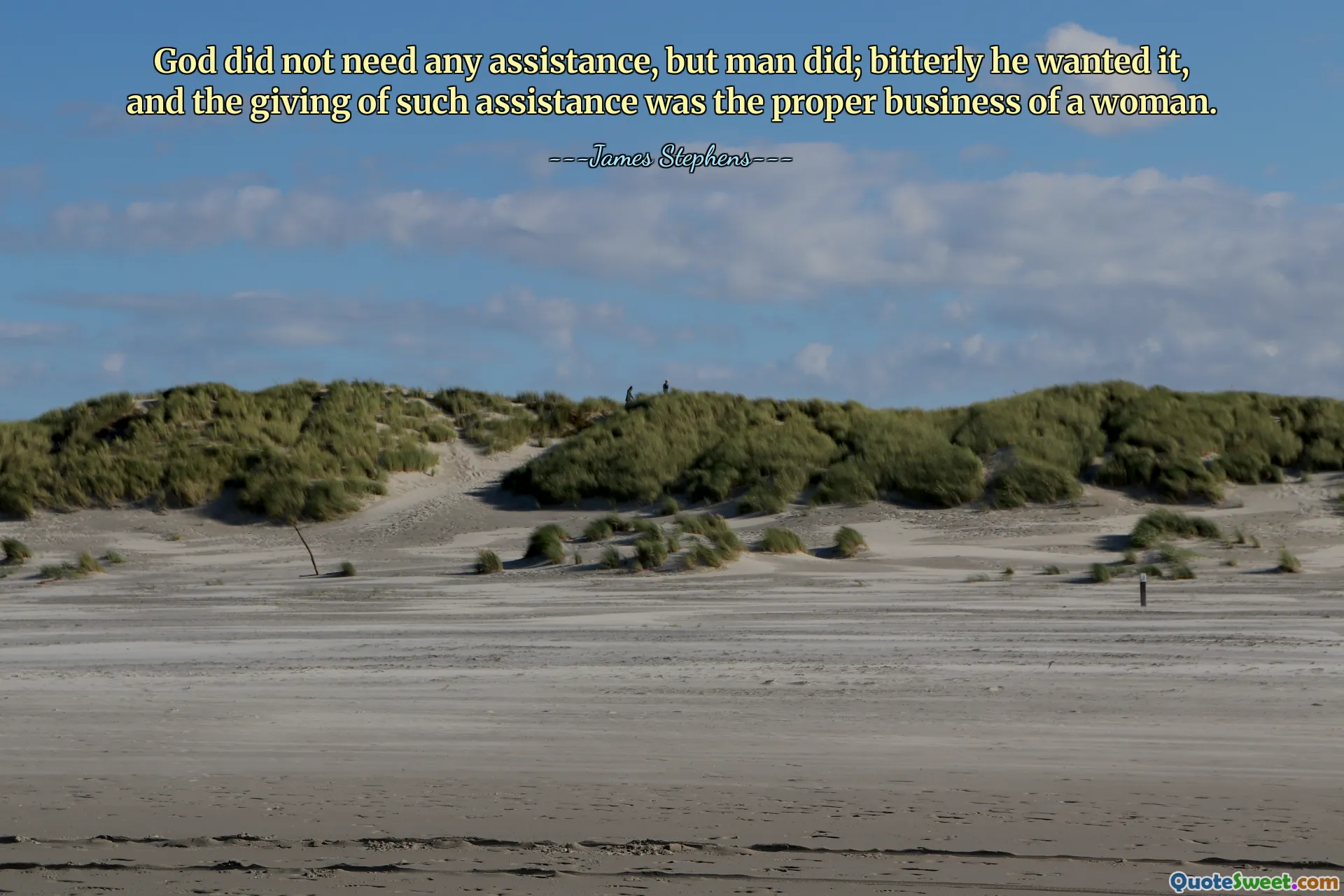
God did not need any assistance, but man did; bitterly he wanted it, and the giving of such assistance was the proper business of a woman.
This quote underscores the complex relationship between divine independence and human dependence, highlighting how humans often seek to involve themselves in matters where they may not be needed, out of desire or a sense of purpose. It suggests that while the divine operates autonomously without assistance, human beings frequently feel the need to intervene, sometimes unnecessarily. The phrase also places a specific emphasis on the role of women in this dynamic, implying that their proper role has historically included the willingness to aid or support others where such help might be unwarranted. This perspective invites reflection on societal expectations and gender roles, emphasizing a certain dignity or duty assigned to women in assisting others, possibly in caregiving, nurturing, or support. Moreover, it brings forth the irony of human pride—our desire to be useful despite circumstances that render such efforts surplus. It prompts us to think about how pride, societal expectations, or perceived duty can compel individuals to step into roles that may not always be necessary or beneficial, into areas where divine authority is absent and human intervention is driven more by cultural conditioning than by actual need. This quote encourages self-awareness about the motives behind our actions and the importance of discerning genuine necessity from the desire to be perceived as helpful or virtuous. Overall, it provokes a contemplative stance on the nature of divine power versus human action and the roles assigned by societal constructs, especially gender roles, in shaping our understanding of assistance and purpose.











